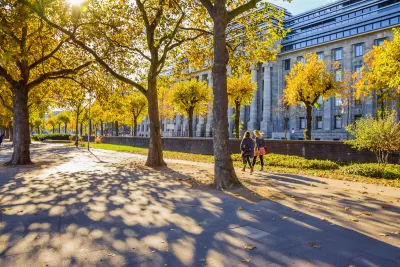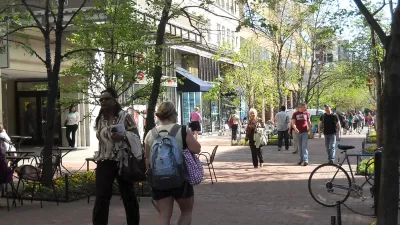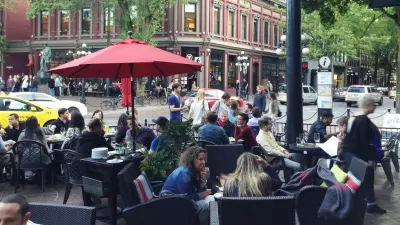With more and more people living in cities, designing equitably healthy urban spaces becomes a key question for policymakers.

“Not all urban areas are created equal, and this can have a big impact on a person’s health. Air quality, heat, food—these are just some of the ways your environment can influence health. Often, it is the poorest areas of a city that have the most negative impact,” writes Rob Reddick in Wired.
Reddick argues that understanding these disparities is increasingly urgent as the world’s urban population is projected to double by 2050. In an interview with Wired, researcher Tolullah Oni describes her research into cities and public health, saying, “I realized we needed to understand the epidemiology of the urban context as the main propagator of diseases.”
As Oni explains, urban planning and design affects everything from air quality to temperature to risk of injury on roadways. For Oni, “Often with developers of public spaces it’s a sin of omission rather than of commission.” In many cases, “What is rarely apparent is what the health cost is, because that cost is born in a different sector and often at a different time.”
Because of the structural scale of the problems, Oni says, “governments have the mandate to ensure health for all. They can’t really absolve any responsibility from that.” Even when development is largely left up to the private sector, “government is responsible also in the legislation holding the private sector accountable.”
FULL STORY: Where You Live Is As Important As What You Eat

Planetizen Federal Action Tracker
A weekly monitor of how Trump’s orders and actions are impacting planners and planning in America.

Congressman Proposes Bill to Rename DC Metro “Trump Train”
The Make Autorail Great Again Act would withhold federal funding to the system until the Washington Metropolitan Area Transit Authority (WMATA), rebrands as the Washington Metropolitan Authority for Greater Access (WMAGA).

The Simple Legislative Tool Transforming Vacant Downtowns
In California, Michigan and Georgia, an easy win is bringing dollars — and delight — back to city centers.

Albuquerque’s Microtransit: A Planner’s Answer to Food Access Gaps
New microtransit vans in Albuquerque aim to close food access gaps by linking low-income areas to grocery stores, cutting travel times by 30 percent and offering planners a scalable model for equity-focused transit.

This City Will Pay You to Meet Your Neighbors
A North Kansas City grant program offers up to $400 for residents to throw neighborhood block parties.

Commentary: Our Silence Will Not Protect Us
Keeping our heads down and our language inoffensive is not the right response to the times we’re in. Solidarity and courage is.
Urban Design for Planners 1: Software Tools
This six-course series explores essential urban design concepts using open source software and equips planners with the tools they need to participate fully in the urban design process.
Planning for Universal Design
Learn the tools for implementing Universal Design in planning regulations.
Smith Gee Studio
City of Charlotte
City of Camden Redevelopment Agency
City of Astoria
Transportation Research & Education Center (TREC) at Portland State University
US High Speed Rail Association
City of Camden Redevelopment Agency
Municipality of Princeton (NJ)





























